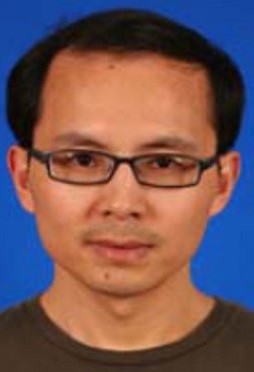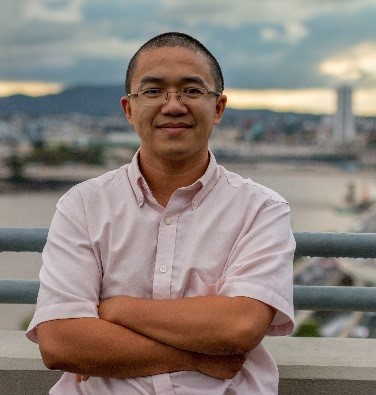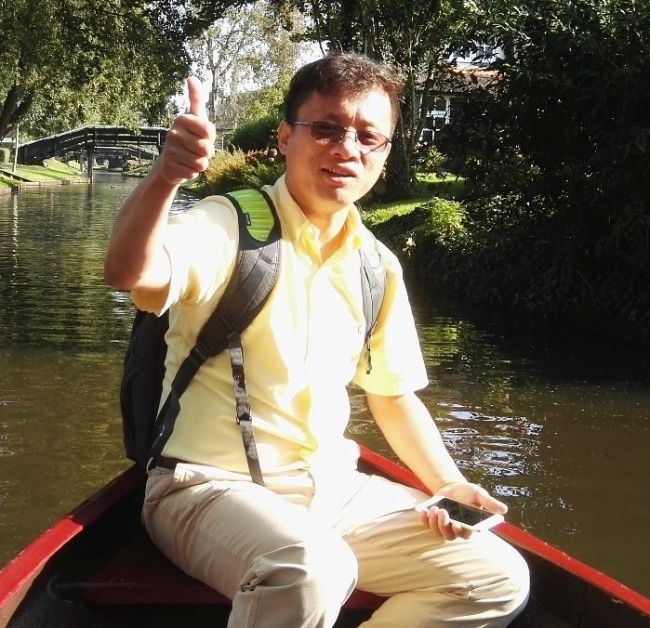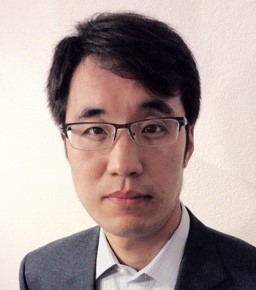主讲人:Prof. Bart van Arem;Dr. Huizhao Tu;Dr. Zuduo Zheng;Prof. Wangjing Ma;Dr. Meng Wang
邀请人:涂辉招 副教授
时间:9月29日(周四)上午9:00-12:30
地点:交通运输工程学院102会议室
Automated driving at TU Delft

主讲人:Bart van Arem
主讲人简介:
Dr. Bart van Arem was appointed full professor Transport Modelling at Delft University of Technology in 2009. He is head of the department Transport & Planning and director of the TU Delft Transport Institute. From 2003-2012 he was part-time full professor at the University of Twente. From 1991-2009, he worked at TNO. Bart van Arem has an MSc (1986) and PhD (1990) degree in Applied Mathematics at the University of Twente, the Netherlands. His research and teaching responsibilities include impacts of intelligent vehicles on drivers and traffic. His recent work includes exploratory studies on spatial and transport system level implications of automated driving, funded by the Dutch Ministry of Infrastructure and Environment. He was cluster coordinator in the TRANSUMO program and managed the HTAS project Connected Cruise Control. He founded the Dutch Automated Vehicle Initiative (DAVI), creating a breakthrough for the interest in automated driving in the Netherlands. He is a very frequent spokesman about the implications of automated driving at international conferences and societal stakeholders.
主讲内容简介:
Automated Driving is a hot topic in transportation. Worldwide research programs and test-sites are emerging and high expectations exist on automated driving to improve traffic efficiency and safety. In this presentation we will review research at TU Delft, that particularly emphasizes the impact of automated driving. We will review aspects such as user acceptance and impacts on traffic flows. We will review transportation system impacts and announce a new research program STAD: Spatial and Transport Impacts of Automated Driving.
Test Bed for Intelligent Connected Vehicles at Tongji University and SIAC

主讲人:Huizhao Tu
主讲人简介:
Dr. Huizhao Tu received the B.Sc. degree in civil engineering and the M. Eng. degree in transportation engineering from Tongji University, China, the Ph.D. degree in Transport & Planning from Delft University of Technology, The Netherlands. He is currently a full associate professor with College of Transportation Engineering, at Tongji University, China. He was with Department of Transport & Planning, Delft University of Technology, The Netherlands, where he was a Researcher from 2003 to 2008. His research interests include intelligent connected vehicles, transport risk management, network reliability analysis, emergency traffic management, travel behavior analysis. From 2003 to 2010, he participated in several Dutch projects on reliable traffic monitoring and emergency traffic management, and from 2010 till now, he participated in several Chinese projects (e.g. two NSFC projects) in emergency driving behavior and multimodal travel time reliability. He is an Associate Editor for the 16th IEEE International Conference on Intelligent Transportation Systems (The Hague, The Netherlands, 2013) and for the 17th IEEE International Conference on Intelligent Transportation Systems (Qingdao, P.R.China, 2014). He is the chair of Joint Chinese-Dutch Seminar on Transportation Management and Travel Behaviour for Urban Emergencies: Past, Present, and Future Research June 2014.
主讲内容简介:
Shanghai’s Jiading district has opened China’s first pilot zone (A Nice City) for testing Intelligent Connected Vehicles (ICVs), authorized by the Ministry of Industry and Information in China. Three test beds has been planned in the pilot zone. The overview of the three zones will be introduced. The principles for environment simulation and the concepts for flexible design are the two key features of the test beds. ICVs-TZone (113K m2), locating in Jiading Campus, will be the test and research center of ICVs and Smart Transportation at Tongji University.The examples of 86 traffic scenarios and of the test cases will be discussed.
Modelling Mixed Traffic of Traditional, Connected, and Automated Vehicles

主讲人:Zuduo Zheng
主讲人简介:
Dr. Zuduo Zheng is an Associate Professor in Science and Engineering Faculty, Queensland University of Technology, and the DECRA Research Fellow from Australian Research Council. His primary research interests include: traffic flow theories, decision making/choice modelling, and econometric analysis and numerical optimizations. He is currently a member of the Editorial Board of several international journals, including Transportation Research Part B and Transportation Research Part C.
主讲内容简介:
Connected and automated vehicle research will leverage the potentially transformative capabilities of wireless technology to make road transport safer, smarter, and greener. It will ultimately enhance the mobility and quality of life, while reducing the environmental impact. However, no existing traffic flow models are capable of reproducing features of mixed traffic flow consisting of traditional, connected, and automated vehicles.
This project addresses this knowledge deficit, and develops an analytical tool with the capability of accurately modelling mixed traffic flow. This new knowledge and model are prerequisites to effective operation and control of traffic flow of traditional, connected, and automated vehicles. In this presentation, an overview of this project will be given with an emphasis on our data collection effort, which is currently ongoing.
Introduction of Traffic Control with Connected and Automated Vehicles

主讲人:Wanjing Ma
主讲人简介:
Dr. Wanjing Ma received his B.Sc. degree in civil engineering from Chang’an University, China, in 2001, and M.S., and Ph.D. degree in Transportation Engineering from Tongji University, Shanghai, China, in 2004 and 2007, respectively. He is currently the Head and a Professor of the Department of Transportation Information and Control Engineering, College of Transportation Engineering, Tongji University. He was a visiting scholar of University of Illinois at Urbana and Champaign, The University of Arizona, and Hong Kong University of Science and Technology. His research focuses on traffic operation and control, intelligent transportation systems, and shared mobility. On these topics, he has published more than 100 articles in peer-reviewed journals. Dr. Ma was the recipient of the award of Shanghai Pujing Scholar Program. He is an active member of professional societies such as the Transportation Research Board (TRB) and World Conference on Transport Research Society (WCTRS). He is on the editorial advisory board of Transportation Research Part C, Journal of Next Generation Information Technology, and Journal of Transport Information and Safety.
主讲内容简介:
The development of connected and automated vehicles is bringing about transformative changes in traffic control related area. This presentation we will firstly give a brief introduction of traffic control research with Connected and Automated Vehicles at Tongji University. Then, we will present an integrated dynamic model for optimizing the spatial-temporal resources of isolated intersection in a connected and automated vehicle environment.
From individual vehicle dynamics to traffic flow dynamics: driver behavior and cooperative systems

主讲人:Meng Wang
主讲人简介:
Dr. Meng Wang is Assistant Professor at the Department of Transport & Planning, TU Delft since 2015. He obtained his Bachelor degree in Tsinghua University, MSc degree in Research Institute of Highway (RIOH), China and PhD with Distinction, TU Delft, all in Civil Engineering. Before he started his academic career, he worked at National ITS Centre at RIOH for three years. His main research interests are driver behavior theory; modeling & design & assessment of automated and connected vehicle systems for safe and efficient traffic. He has won several awards, including IEEE ITS Society Best PhD Dissertation Award (2nd place), Outstanding Overseas PhD Student Award by Chinese Scholarship Council, IEEE ITS Conference Best Paper Award, ITS World Congress Best Paper Award.
主讲内容简介:
In this presentation, the implications of automated and cooperative vehicle systems on traffic flow dynamics are discussed with an emphasis on changes in driving behavior. Examples will be given in how to model and design cooperative systems that support or even take over drivers in performing driving tasks to improve traffic flow dynamics.
欢迎各位老师、同学参加同路人学术论坛!
交通运输工程学院研究生会
交通运输工程学院青年教师沙龙